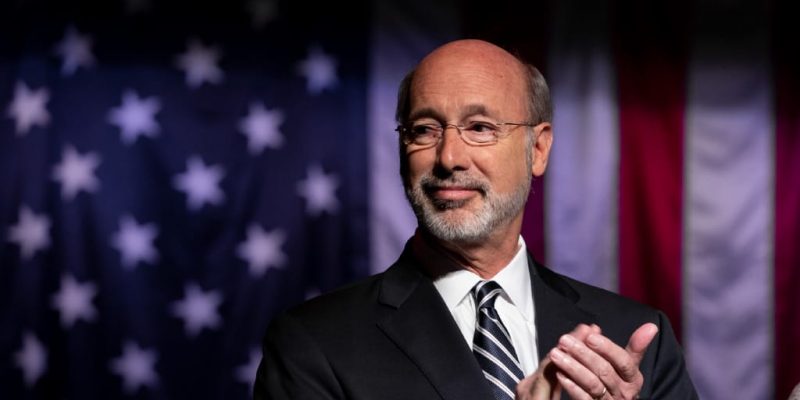“What we say is, [Wolf] doesn’t have this particular police power.”
Katie Meyer/WHYY
Scaringi believes his is the first such lawsuit to be filed with the high court, but acknowledged that Wolf’s business closure orders are similar to the ones that nearly every governor has handed down in response to the pandemic. The court is looking for more information before deciding whether to take the case.
“Governors across the country have police powers, they always have,” he said of the extraordinary measures that governors can take in emergencies. “But what we say is, [Wolf] doesn’t have this particular police power. That the en masse shutting down of businesses has never been utilized before.”
There are five plaintiffs in Scaringi’s case: a golf course, a real estate agent, a timber company, a laundromat owner and a GOP state House candidate.
Scaringi is making several intermingled constitutional arguments on their behalf. For one, he claims Wolf is depriving people of their property without due process or compensation. He also argues that letting businesses apply for waivers to keep operating was an insufficient and opaque method for providing that due process. He also said Wolf’s waiver decisions have been “capricious” — which he says also violates the right to equal protection.
In the case of the state House candidate, Danny DeVito, Scaringi argues that necessary free speech and assembly rights are being violated because DeVito can no longer campaign as usual.
A spokeswoman for the Wolf administration said she can’t comment on ongoing litigation.
“Governors across the country have police powers, they always have,” he said of the extraordinary measures that governors can take in emergencies. “But what we say is, [Wolf] doesn’t have this particular police power. That the en masse shutting down of businesses has never been utilized before.”
There are five plaintiffs in Scaringi’s case: a golf course, a real estate agent, a timber company, a laundromat owner and a GOP state House candidate.
Scaringi is making several intermingled constitutional arguments on their behalf. For one, he claims Wolf is depriving people of their property without due process or compensation. He also argues that letting businesses apply for waivers to keep operating was an insufficient and opaque method for providing that due process. He also said Wolf’s waiver decisions have been “capricious” — which he says also violates the right to equal protection.
In the case of the state House candidate, Danny DeVito, Scaringi argues that necessary free speech and assembly rights are being violated because DeVito can no longer campaign as usual.
A spokeswoman for the Wolf administration said she can’t comment on ongoing litigation.
WHYY is the leading public media station serving the Philadelphia region, including Delaware, South Jersey and Pennsylvania. This story originally appeared on?WHYY.org.
